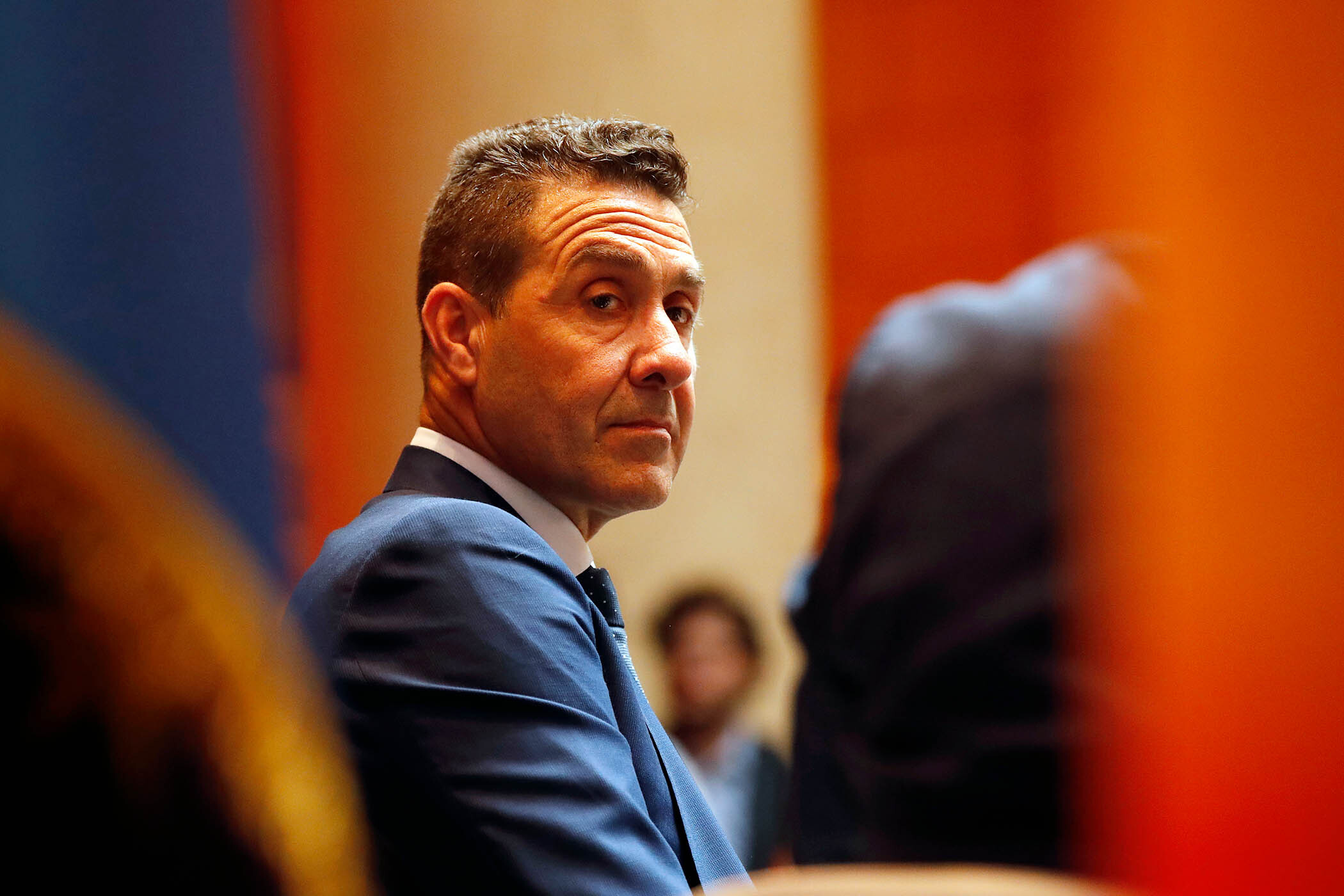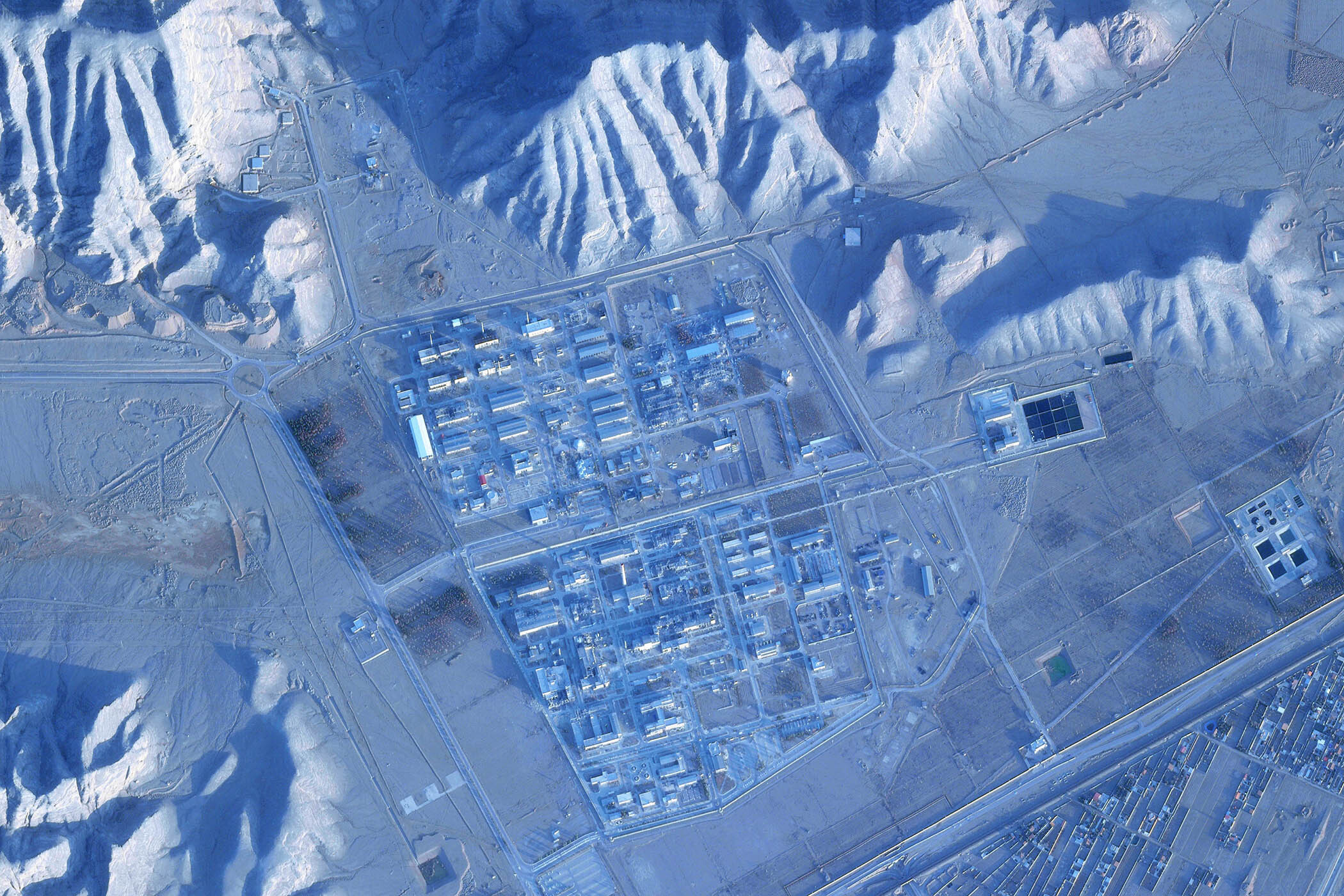In 2003, the United States and Britain waged a war to rid Iraq of weapons of mass destruction that it turned out not to have. A “big fat mistake” Donald Trump would call it, aided by the benefit of hindsight. Manifestly illegal and a political catastrophe, most people now conclude. Two decades on, Israeli prime minister Benjamin Netanyahu’s decision to attack Iran to prevent it from making a nuclear weapon raises anew the same question. Can it be lawful to use military means to frustrate a country’s capacity to develop or use a weapon of mass destruction at some point in the future?
The rules of international law have not changed since Iraq. Broadly, they allow military force to be engaged in two circumstances: if authorised by the Security Council (the British claim in relation to Iraq was implausible then, and not even argued today), or in “exercise of the inherent right of individual or collective self-defence if an armed attack occurs”, as Article 51 of the UN charter puts it. The latter is the implicit but unstated rationale put forward by Israel, in a letter sent to the UN Security Council. The use of force is to “neutralise the existential and imminent threat from Iran’s nuclear weapon and ballistic missile programs”, Israel argues, to “thwart the threat of imminent attacks” and “prevent Iran from acquiring nuclear weapons,” against the background of the Iranian regime’s “openly declared plan to annihilate the state of Israel”. In this regard, some argue that Israel’s attack is to be assessed in the context of an ongoing military conflict that involves Iran’s proxies, including Hamas, Hezbollah and the Houthis.
Iran’s nuclear actions are a real issue. A day before the attack the International Atomic Energy Agency’s board of governors declared Iran to have “failed to co-operate fully with the Agency” on nuclear safeguards and to be non-compliant with obligations in relation to “undeclared nuclear material and activities at multiple undeclared locations in Iran”. The governors determined that the IAEA “is not able to verify that there has been no diversion of nuclear material … to nuclear weapons or other nuclear explosive devices”, or “to provide assurance that Iran’s nuclear programme is exclusively peaceful”.
These serious failings have caused the IAEA to express “grave concern”. Do they justify the current military actions? The IAEA has not determined that Iran has a nuclear weapon, or is capable of developing one, or even wishes to do so (although the evidence plainly points in that direction, it must be said). Nor is there evidence that Iran’s proxies are engaged in its nuclear programme. The board has noted the role of the Security Council, which has met to debate the issue but not acted.
Israel was not subjected to an armed attack from Iran, and on the basis of evidence publicly available it cannot be said that an attack backed by the possession of a possible nuclear weapon was “imminent”. It’s hard to see how attacks by proxies – however real – could be said to justify the nature, scale and direction of the targets in Iran. Regime change is not an objective that is permitted by international law. On the basis of the facts that are publicly available, it is difficult to see a legal basis for Israel’s far-reaching actions, or for the US or others to support Israel, or for Britain to authorise the use of the US military base at Diego Garcia to allow a B2 bomber based there to launch an attack on Iran’s Fordow nuclear site.
It is difficult to see a legal basis for Israel’s far-reaching actions
It is difficult to see a legal basis for Israel’s far-reaching actions
Keir Starmer’s government – which has expressed a clear commitment to enhance the rule of international law – will be acutely aware of the political dangers of engaging in a military operation of uncertain consequence and outcome, one that would engender huge political risks and be of implausible legality. No surprise then to read reports that the attorney general has provided warnings. Jonathan Powell, the national security adviser, is particularly well-placed to advise on the dangers, having served as Tony Blair’s chief of staff during the Iraq episode. Minds in London should also be concentrated by the history of Britain’s engagement with Iran, not least its role in the downfall of the Mossadegh government, back in 1953, whose catastrophic legacy includes Tehran’s current regime.
International law does matter. Beyond offering a line that distinguishes between that which is lawful and unlawful, its requirements focus the mind on the important issues, namely the facts. Today, those facts concern what Iran is actually doing, what its intentions are, and what it may imminently be about to do, or be capable of doing. The publicly available facts do not indicate that Iran is imminently going to use a nuclear weapon against Israel, as the US national security adviser has made clear. There is “a substantial chance of negotiations” with Iran, Trump said this week. Diplomacy needs to continue, the rules followed. The legacies of Iran in 1953, and, more recently, of Afghanistan, Iraq and Libya, teach us that loose talk of regime change imposed with the barrel of a foreign gun, or the need for lawless military adventures, have consequences over the much longer term, which may be unintended, unpredictable and disastrous.
Philippe Sands is Professor of Law at University College London and a barrister. His books include Lawless World (2005), on Iraq
Photograph by Sean Smith/Getty
Newsletters
Choose the newsletters you want to receive
View more
For information about how The Observer protects your data, read our Privacy Policy



